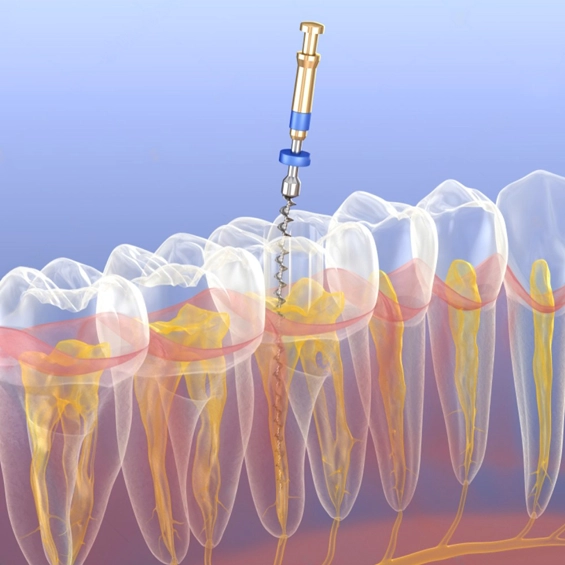
The Importance of Root Canals
Our teeth are made up of dental enamel, dentin, and pulp. Dental enamel forms the outer layer, while dentin is the softer layer beneath it. The pulp, containing connective tissue, nerves, and blood vessels, is located under the dentin. Normally, the pulp is well protected by enamel and dentin, but if bacteria enter through a deep cavity, fracture, or tooth trauma, an infection can occur.
An infected tooth can be extremely painful, and if left untreated, the pain may worsen over time. While extraction may become necessary, it is never our first option. Missing teeth can lead to various oral health issues, including bone loss and shifting of adjacent teeth. Root canal treatment offers a solution by removing the infection, preserving your natural teeth, and restoring oral health. Compared to tooth extraction, root canal therapy is generally less uncomfortable and has a quicker recovery time.
Signs for Root Canal Treatment
- I have a severe toothache.
- I'm experiencing discomfort or swelling in my jaw.
- I have heightened tooth sensitivity.
- There's a bump on my gums that looks like a pimple.
- My gums are red, swollen, or puffy.
- I may be noticing an unpleasant taste or odor in my mouth.
What happens during a Root Canal?
Many patients feel anxious about root canals, but there’s no need to worry—it's not a daunting procedure. Our dentist utilizes state-of-the-art 3D cone-beam (CBCT) imaging to meticulously plan your treatment, providing a three-dimensional view of your tooth.
This advanced imaging helps our dentists accurately evaluate the tooth's anatomy and tailor the procedure to your needs. With the use of anesthesia and cutting-edge technology, patient comfort and overall outcomes are greatly enhanced. Most patients experience significant relief right after the procedure.
We promise to ensure your comfort
If you struggle with dental anxiety, we have the perfect solution for you. Our oral sedation can help you relax during your dental procedure. Additionally, we prioritize your comfort by offering neck pillows, blankets, and TVs in our treatment rooms.
Before starting the procedure, our dentist will apply a strong local anesthetic to numb the tooth, ensuring a pain-free experience. If you arrived at our clinic in discomfort, you'll feel immediate relief as soon as the tooth is numb!
